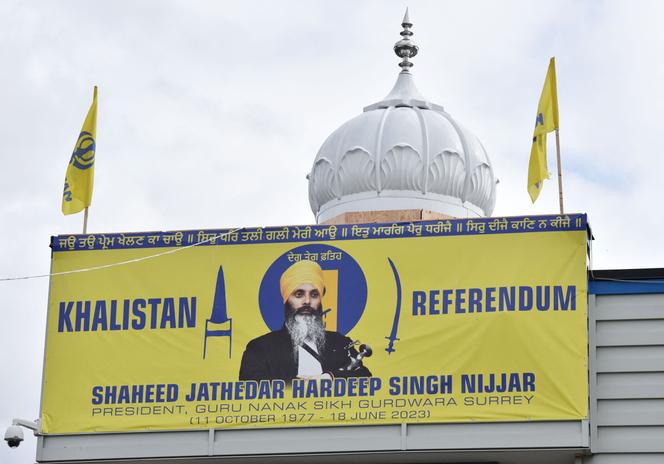


The tension between Canada and India keeps growing. Since Canadian Prime Minister Justin Trudeau implicated Narendra Modi's Indian government on Monday, September 18, in the murder of Hardeep Singh Nijjar, a 45-year-old Canadian citizen of Sikh confession shot dead in British Columbia on June 18, the two countries have escalated a reprisal cycle: After first reciprocal expulsions of diplomats, Canada announced it would keep "adjusting" the presence of its diplomatic personnel in India. On Thursday, India said it was initiating the same process and would "temporarily" stop processing Canadian visa applications.
Ottawa already had tumultuous relations with China. Now it is with Asia's other great power that Canada finds itself at odds. New Delhi described the accusation made by Trudeau as "absurd." India's foreign ministry even attempted to reverse the burden of proof, claiming the allegations sought "shift the focus from Khalistani terrorists and extremists who have been provided shelter in Canada and continue to threaten India's sovereignty and territorial integrity." Trudeau's office told Canadian media it had solid evidence implicating the Indian government.
Since the terror unleashed in India in the 1980s by the Sikh separatist movement led by radical preacher Jarnail Singh Bhindranwale – who had called for an independent state in Punjab and whose attacks claimed some 20,000 victims – the Indian authorities' reaction to the Khalistan question has been epidermal. The Modi government suspects that Sikh places of worship established abroad, in Britain, Australia, and Canada, are controlled by militants. Since coming to power in 2014, Hindu nationalists have regularly brandished the threat of Sikh separatism to mobilize voters.
With some 770,000 members, Canada's Sikh community, which arrived there in the early 20th century, is, outside Punjab, the largest in the world. "The Indian authorities have always suspected Canada of being soft on the more radical elements of this minority," according to Serge Granger, a researcher at the University of Sherbrooke, Quebec, "but in recent years, their wrath has risen a notch, as Canada happens to be the epicenter of the resurgence of Sikh nationalism, perhaps because of the repression it faces in India."
An activist for the creation of Khalistan, Nijjar, who arrived in Canada in 1997, was wanted by the Indian National Investigation Agency for alleged terrorism. He has always denied any violent action, but in recent months, he had taken part, with the Sikhs for Justice association, in the organization of symbolic referendums in British Columbia calling for the creation of an independent Sikh state. On this occasion, posters showing AK-47 rifles and glorifying the assassins of Indira Gandhi, the former Indian prime minister killed in 1984 by her Sikh bodyguards, were used as election propaganda. This was a provocation for India.
You have 52.95% of this article left to read. The rest is for subscribers only.
